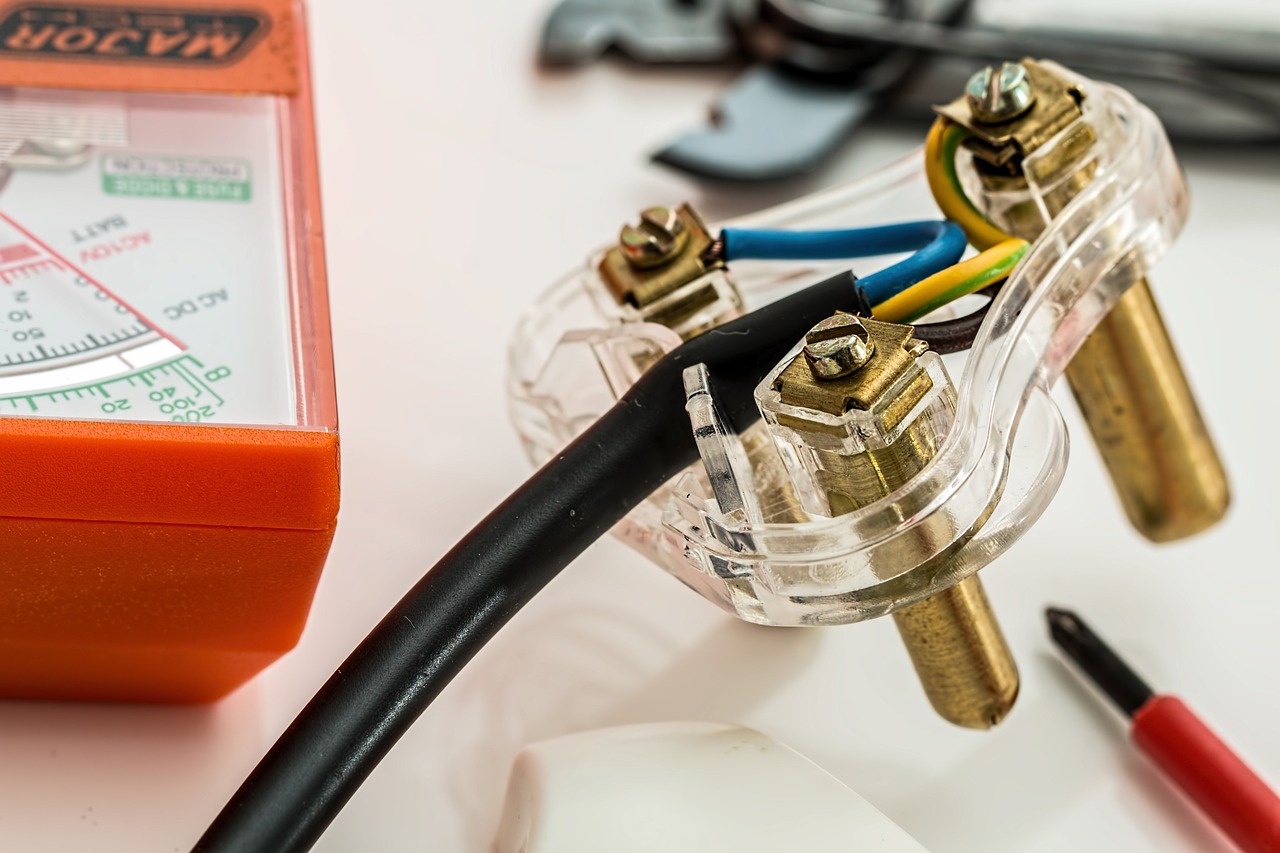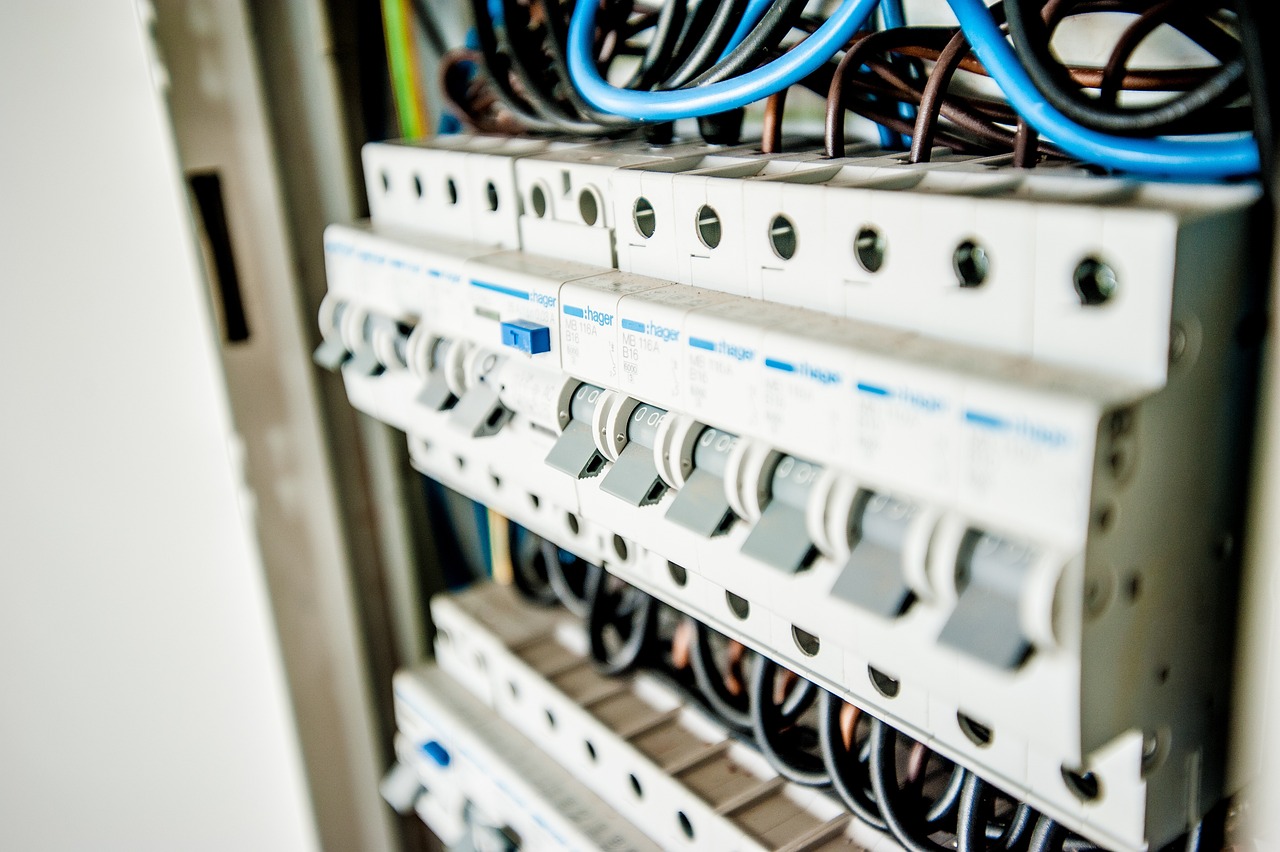Are you an electric contractor looking to make a positive impact on the environment? One way to do so is by implementing eco-friendly rewiring practices. By taking steps to reduce energy consumption, minimize waste, and use energy-efficient products, you can not only help the planet, but also save your clients money on their energy bills.
In this article, we will guide you through the process of eco-friendly rewiring. We’ll start by explaining why it’s important to prioritize sustainability in your work.
From there, we’ll provide tips on selecting energy-efficient products and minimizing waste.
You’ll also learn about sustainable practices you can implement on job sites, as well as how to collaborate with clients to create a greener future.
With our guide, you can make a positive impact on the environment while still providing high-quality electrical services to your clients.
Understanding the Importance of Eco-Friendly Rewiring
You need to understand why eco-friendly rewiring is crucial for reducing your carbon footprint and creating a sustainable future.
The environmental impact of traditional electrical wiring practices is significant, with the production and disposal of materials contributing to greenhouse gas emissions and pollution.
By adopting eco-friendly rewiring practices, you can reduce your impact on the environment and contribute to a healthier planet.
In addition to the environmental benefits, there are also long term benefits to eco-friendly rewiring.
By using energy-efficient materials and technologies, you can reduce your energy consumption and save money on your electricity bills.
This can also increase the value of your property and make it more attractive to potential buyers.
By making the switch to eco-friendly rewiring practices, you can not only benefit the environment but also your own financial future.
Selecting Energy-Efficient Products
When choosing products for your rewiring projects, it’s important to consider their energy efficiency and impact on the environment. One way to do this is by comparing costs and evaluating performance.
Look for products that are Energy Star certified, which means they meet strict energy efficiency guidelines set by the U.S. Environmental Protection Agency. You can also look for LED lighting options, which can save up to 75% on energy costs compared to traditional bulbs.
When evaluating performance, consider the product’s lifespan and how often it will need to be replaced. While some energy-efficient products may have a higher upfront cost, they can save you money in the long run by reducing energy usage and minimizing the need for frequent replacements.
Additionally, choosing products made from sustainable materials, such as bamboo or recycled plastic, can further reduce your environmental impact. By making conscious choices when selecting products, you can contribute to a more eco-friendly rewiring project.
Minimizing Waste and Reducing Energy Consumption
To minimize waste and reduce energy consumption, it’s important to consider the materials used in your rewiring project and how they can be recycled or repurposed.
Upcycling materials is a great way to reduce the amount of waste produced during a rewiring project. For example, instead of throwing away old electrical wires, they can be stripped and reused as garden ties or craft materials. Old light fixtures can be repurposed into unique home decor pieces, while switch plates can be painted and used as wall art.
Another important aspect of eco-friendly rewiring practices is implementing energy saving techniques. This can include installing energy-efficient light bulbs, using smart home technology to control lighting and temperature, and properly insulating walls and ceilings to reduce energy loss.
By reducing energy consumption, you not only help the environment but also save money on energy bills. So, be sure to consider both upcycling materials and implementing energy saving techniques when planning your rewiring project.
Implementing Sustainable Practices on Job Sites
Implementing sustainable techniques on construction sites can lead to a reduction in waste and a more environmentally-conscious project.
As an electric contractor, it’s important to consider green certification and eco-conscious training when planning and executing rewiring jobs. By doing so, you can ensure that your team is knowledgeable about the latest sustainable practices and can implement them effectively.

One way to implement sustainable practices on job sites is to use materials that are eco-friendly and energy-efficient. This can include using LED lighting, energy-efficient appliances, and sustainable insulation materials.
Additionally, it’s important to properly dispose of any waste generated during the job, such as old wiring and insulation. By following these practices, you can not only reduce waste and energy consumption, but also improve the overall sustainability of the project.
Collaborating with Clients for a Greener Future
Collaborating with clients can lead to significant progress towards a more sustainable future. As an electric contractor, it’s important to educate your clients about the benefits of sustainable solutions.
This can include using energy-efficient lighting, smart home systems, and renewable energy sources. By working with your clients to implement these practices, you can help them reduce their carbon footprint and save money on energy bills.
In addition to educating your clients, it’s important to offer sustainable solutions that fit their specific needs and budget. This can involve conducting an energy audit to identify areas for improvement, recommending products with eco-friendly certifications, and providing options for recycling or repurposing materials.
By collaborating with your clients in this way, you can build trust and establish a reputation as a contractor who is committed to sustainability. Together, you can achieve a greener future for your clients and the planet.
Frequently Asked Questions
What are the potential cost savings associated with eco-friendly rewiring practices?
You can save money by using energy efficient appliances and sustainable building materials. These practices reduce energy consumption and lower utility bills. Over time, the cost savings can be significant.
How can electric contractors ensure they are properly disposing of hazardous waste during rewiring projects?
To properly dispose of hazardous waste during rewiring projects, you should follow green rewiring techniques. This includes identifying and separating hazardous materials, using proper storage and disposal methods, and complying with local regulations.
Are there any government incentives or tax credits available for implementing eco-friendly rewiring practices?
Did you know that you may qualify for government incentives and tax credits for implementing eco-friendly rewiring practices? These incentives aim to reduce the environmental impact of rewiring projects and promote sustainability in the industry.
What are some common misconceptions about eco-friendly rewiring practices, and how can electric contractors address them?
Common misconceptions about eco-friendly rewiring practices include that they are too expensive and don’t provide significant benefits. Electric contractors can address these concerns by highlighting the long-term cost savings and environmental impacts of implementing these practices.
How can electric contractors educate their clients on the importance of eco-friendly rewiring practices and encourage them to make environmentally-conscious decisions?
To educate clients on eco-friendly rewiring, explain the benefits of sustainable materials like LED lighting and smart thermostats. Encourage conscious decision-making by highlighting long-term cost savings and reduced environmental impact.
Conclusion
Congratulations! You’ve just learned about the importance of eco-friendly rewiring practices for electric contractors. By selecting energy-efficient products, minimizing waste, reducing energy consumption, and implementing sustainable practices on job sites, you can significantly reduce your carbon footprint and contribute to a greener future.
Remember that collaboration with clients is essential to ensure that their needs are met while staying true to your eco-friendly values. By communicating the benefits of eco-friendly rewiring and offering sustainable options, you can inspire your clients to join you in your efforts to protect the environment.
So go ahead and start implementing these practices today, and let’s work together to create a more sustainable future for generations to come!



